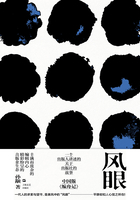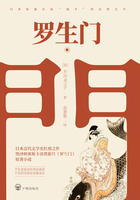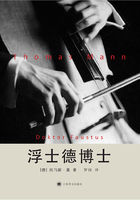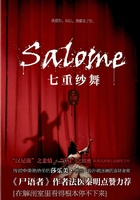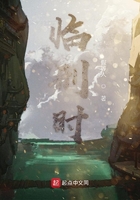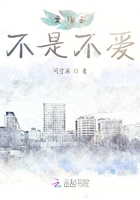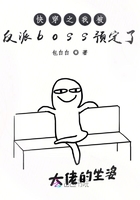Chapter 8
She asked herself as she walked along, “What am I going to say? How shall I begin?”And as she went on she recognised the thickets, the trees, the sea-rushes onthe hill, the chateau yonder. All the sensations of her first tenderness cameback to her, and her poor aching heart opened out amorously. A warm wind blewin her face; the melting snow fell drop by drop from the buds to the grass.
She entered, as she used to, through thesmall park-gate. She reached the avenue bordered by a double row of denselime-trees. They were swaying their long whispering branches to and fro. Thedogs in their kennels all barked, and the noise of their voices resounded, butbrought out no one.
She went up the large straight staircase withwooden balusters that led to the corridor paved with dusty flags, into whichseveral doors in a row opened, as in a monastery or an inn. His was at the top,right at the end, on the left. When she placed her fingers on the lock herstrength suddenly deserted her. She was afraid, almost wished he would not bethere, though this was her only hope, her last chance of salvation. Shecollected her thoughts for one moment, and, strengthening herself by thefeeling of present necessity, went in.
He was in front of the fire, both his feet onthe mantelpiece, smoking a pipe.
“What! it is you!” hesaid, getting up hurriedly.
“Yes, it is I, Rodolphe. I should like to askyour advice.” And, despite all her efforts, it wasimpossible for her to open her lips.
“You have not changed; you are charming asever!”
“Oh,” she repliedbitterly, “they are poor charms since you disdainedthem.”
Then he began a long explanation of hisconduct, excusing himself in vague terms, in default of being able to inventbetter.
She yielded to his words, still more to hisvoice and the sight of him, so that, she pretended to believe, or perhapsbelieved; in the pretext he gave for their rupture; this was a secret on whichdepended the honour, the very life of a third person.
“No matter!” shesaid, looking at him sadly. “I have suffered much.”
He replied philosophically-
“Such is life!”
“Has life,” Emma wenton, “been good to you at least, since our separation?”
“Oh, neither good nor bad.”
“Perhaps it would have been better never tohave parted.”
“Yes, perhaps.”
“You think so?” shesaid, drawing nearer, and she sighed. “Oh, Rodolphe! ifyou but knew! I loved you so!”
It was then that she took his hand, and theyremained some time, their fingers intertwined, like that first day at the Show.With a gesture of pride he struggled against this emotion. But sinking upon hisbreast she said to him-
“How did you think I could live without you?One cannot lose the habit of happiness. I was desolate. I thought I should die.I will tell you about all that and you will see. And you- you fled from me!”
For, all the three years, he had carefullyavoided her in consequence of that natural cowardice that characterises thestronger ***. Emma went on, with dainty little nods, more coaxing than anamorous kitten-
“You love others, confess.it! Oh, Iunderstand them, dear! I excuse them. You probably seduced them as you seducedme. You are indeed a man; you have everything to make one love you. But we'll begin again, won't we? We will love oneanother. See! I am laughing; I am happy! Oh, speak!”
And she was charming to see, with her eyes,in which trembled a tear, like the rain of a storm in a blue corolla.
He had drawn her upon his knees, and with theback of his hand was caressing her smooth hair, where in the twilight wasmirrored like a golden arrow one last ray of the sun. She bent down her brow;at last he kissed her on the eyelids quite gently with the tips of his lips.
“Why, you have been crying! What for?”
She burst into tears. Rodolphe thought thiswas an outburst of her love. As she did not speak, he took this silence for alast remnant of resistance, and then he cried out-
“Oh, forgive me! You are the only one whopleases me. I was imbecile and cruel. I love you. I will love you always. Whatis it. Tell me!” He was kneeling by her.
“Well, I am ruined, Rodolphe! You must lendme three thousand francs.”
“But - but -” saidhe, getting up slowly, while his face assumed a grave expression.
“You know,” she wenton quickly, “that my husband had placed his wholefortune at a notary's. He ran away. So we borrowed; the patients don't pay us.Moreover, the settling of the estate is not yet done; we shall have the moneylater on. But to-day, for want of three thousand francs, we are to be sold up.It is to be at once, this very moment, and, counting upon your friendship, Ihave come to you.”
“Ah!” thoughtRodolphe, turning very pale, “that was what she camefor.” At last he said with a calm air-
“Dear madame, I have not got them.”
He did not lie. If he had had them, he would,no doubt, have given them, although it is generally disagreeable to do suchfine things: a demand for money being, of all the winds that blow upon love,the coldest and most destructive.
First she looked at him for some moments.
“You have not got them!” she repeated several times. “You have notgot them! I ought to have spared myself this last shame. You never loved me.You are no better than the others.”
She was betraying, ruining herself.
Rodolphe interrupted her, declaring he was “hard up” himself.
“Ah! I pity you,”said Emma. “Yes - very much.”
And fixing her eyes upon an embossedcarabine, that shone against its panoply, “But when oneis so poor one doesn't have silver on the butt of one's gun. One doesn't buy aclock inlaid with tortoise shell,” she went on,pointing to a buhl timepiece, “nor silver-gilt whistlesfor one's whips,” and shetouched them, “nor charms for one's watch. Oh!”
he wants for nothing! even to a liqueur-standin his room! For you love yourself; you live well. You have a chateau, farms,woods; you go hunting; you travel to Paris. Why, if it were but that,” she cried, taking up two studs from the mantelpiece, “but the least of these trifles, one can get money for them. Oh, I donot want them, keep them!”
And she threw the two links away from her,their gold chain breaking as it struck against the wall.
“But I! I would have given you everything. Iwould have sold all, worked for you with my hands, I would have begged on thehighroads for a smile, for a look, to hear you say 'Thanks!' And you sit there quietly in your arm-chair, as if you had not mademe suffer enough already! But for you, and you know it, I might have livedhappily. What made you do it? Was it a bet? Yet you loved me- you said so. Andbut a moment since- Ah! it would have been better to have driven me away. My handsare hot with your kisses, and there is the spot on the carpet where at my kneesyou swore an eternity of love! You made me believe you; for two years you heldme in the most magnificent, the sweetest dream! Eh! Our plans for the journey,do you remember? Oh, your letter! your letter! it tore my heart! And then whenI come back to him- to him, rich, happy, free- to implore the help the firststranger would give, a suppliant, and bringing back to him all my tenderness,he repulses me because it would cost him three thousand francs!”
“I haven't got them,” replied Rodolphe, with that perfect calm with which resigned ragecovers itself as with a shield.
She went out. The walls trembled, the ceilingwas crushing her, and she passed back through the long alley, stumbling againstthe heaps of dead leaves scattered by the wind. At last she reached the ha-hahedge in front of the gate; she broke her nails against the lock in her hasteto open it. Then a hundred steps farther on, breathless, almost falling, shestopped. And now turning round, she once more saw the impassive chateau, withthe park, the gardens, the three courts, and all the windows of the facade.
She remained lost in stupor, and having nomore consciousness of herself than through the beating of her arteries, thatshe seemed to hear bursting forth like a deafening music filling all thefields. The earth beneath her feet was more yielding than the sea, and thefurrows seemed to her immense brown waves breaking into foam. Everything in herhead, of memories, ideas, went off at once like a thousand pieces of fireworks.She saw her father, Lheureux's closet, their room athome, another landscape. Madness was coming upon her; she grew afraid, andmanaged to recover herself, in a confused way, it is true, for she did not inthe least remember the cause of the terrible condition she was in, that is tosay, the question of money. She suffered only in her love, and felt her soulpassing from her in this memory; as wounded men, dying, feel their life ebbfrom their bleeding wounds.
Night was falling, crows were flying about.
Suddenly it seemed to her that fiery sphereswere exploding in the air like fulminating balls when they strike, and werewhirling, whirling, to melt at last upon the snow between the branches of thetrees. In the midst of each of them appeared the face of Rodolphe. Theymultiplied and drew near her, penetrating, her. It all disappeared; sherecognised the lights of the houses that shone through the fog.
Now her situation, like an abyss, rose up beforeher. She was panting as if her heart would burst. Then in an ecstasy ofheroism, that made her almost joyous, she ran down the hill, crossed thecow-plank, the foot-path, the alley, the market, and reached the chemist's shop. She was about to enter, but at the sound of the bell someonemight come, and slipping in by the gate, holding her breath, feeling her wayalong the walls, she went as far'as the door of thekitchen, where a candle stuck on the stove was burning. Justin in hisshirt-sleeves was carrying out a dish.
“Ah! they are dining; I will wait.”
He returned; she tapped at the window. Hewent out.
“The key! the one for upstairs where he keepsthe-”
“What?”
And he looked at her, astonished at thepallor of her face, that stood out white against the black background of thenight. She seemed to him extraordinarily beautiful and majestic as a phantom.Without understanding what she wanted, he had the presentiment of somethingterrible.
But she went on quickly in a love voice; in asweet, melting voice, “I want it; give it to me.”
As the partition wall was thin, they couldhear the clatter of the forks on the plates in the dining-room.
She pretended that she wanted to kill therats that kept her from sleeping.
“I must tell master.”
“No, stay!” Then withan indifferent air, “Oh, it'snot worth while; I'll tell him presently. Come, lightme upstairs.”
She entered the corridor into which thelaboratory door opened. Against the wall was a key labelled Capharnaiim.
“Justin!” called thedruggist impatiently.
“Let us go up.”
And he followed her. The key turned in thelock, and she went straight to the third shelf, so well did her memory guideher, seized the blue jar, tore out the cork, plunged in her hand, andwithdrawing it full of a white powder, she began eating it.
“Stop!” he cried,rushing at her.
“Hush! someone will come.”
He was in despair, was calling out.
“Say nothing, or all the blame will fall onyour master.”
Then she went home, suddenly calmed, and withsomething of the serenity of one that had performed a duty.
When Charles, distracted by the news of thedistraint, returned home, Emma had just gone out. He cried aloud, wept,fainted, but she did not return. Where could she be? He sent Félicité to Homais, to Monsieur Tuvache, toLheureux, to the “Lion d'Or,” everywhere, and in the intervals of his agony he saw his reputationdestroyed, their fortune lost, Berthe's future ruined.By what?- Not a word! He waited till six in the evening. At last, unable tobear it any longer, and fancying she had gone to Rouen, he set out along thehighroad, walked a mile, met no one, again waited, and returned home. She hadcome back.
“What was the matter? Why? Explain to me.”
She sat down at her writing-table and wrote aletter, which she sealed slowly, adding the date and the hour. Then she said ina solemn tone:
“You are to read it to-morrow; till then, Ipray you, do not ask me a single question. No, not one!”
“But-”
“Oh, leave me!”
She lay down full length on her bed. A bittertaste that she felt in her mouth awakened her. She saw Charles, and againclosed her eyes.
She was studying herself curiously, to see ifshe were not suffering. But nothing as yet. She heard the ticking of the clock,the crackling of the fire, and Charles breathing as he stood upright by her bed.
“Ah! it is but a little thing, death!” she thought. “I shall fall asleep and allwill be over.”
She drank a mouthful of water and turned tothe wall. The frightful taste of ink continued.
“I am thirsty; oh! so thirsty,” she sighed.
“What is it?” said Charles,who was handing her a glass.
“It is nothing! Open the window; I amchoking.”
She was seized with a sickness so sudden thatshe had hardly time to draw out her handkerchief from under the pillow.
“Take it away,” shesaid quickly; “throw it away.”
He spoke to her; she did not answer. She laymotionless, afraid that the slightest movement might make her vomit. But shefelt an icy cold creeping from her feet to her heart.
“Ah! it is beginning,” she murmured.
“What did you say?”
She turned her head from side to side with agentle movement full of agony, while constantly opening her mouth as ifsomething very heavy were weighing upon her tongue. At eight o'clock the vomiting began again.
Charles noticed that at the bottom of thebasin there was a sort of white sediment sticking to the sides of theporcelain.
“This is extraordinary- very singular,” he repeated.
But she said in a firm voice, “No, you are mistaken.”
Then gently, and almost as caressing her, hepassed his hand over her stomach. She uttered a sharp cry. He fell backterror-stricken.
Then she began to groan, faintly at first.Her shoulders were shaken by a strong shuddering, and she was growing palerthan the sheets in which her clenched fingers buried themselves. Her unequalpulse was now almost imperceptible.
Drops of sweat oozed from her bluish face,that seemed as if rigid in the exhalations of a metallic vapour. Her teethchattered, her dilated eyes looked vaguely about her, and to all questions shereplied only with a shake of the head; she even smiled once or twice.Gradually, her moaning grew louder; a hollow shriek burst from her; shepretended she was better and that she would get up presently. But she wasseized with convulsions and cried out-
“Ah! my God! It is horrible!”
He threw himself on his knees by her bed.
“Tell me! what have you eaten? Answer, forheaven's sake!”
And he looked at her with a tenderness in hiseyes such as she had never seen.
“Well, there- there!”she said in a faint voice. He flew to the writing-table, tore open the seal,and read aloud: “Accuse no one.” He stopped, passed his hands across his eyes, and read it overagain.
“What! help- help!”
He could only keep repeating the word: “Poisoned! poisoned!” Félicité ran to Homais, who proclaimed it inthe market-place; Madame Lefrancois heard it at the “Liond'Or”; some got up to go andtell their neighbours, and all night the village was on the alert.
Distraught, faltering, reeling, Charleswandered about the room. He knocked against the furniture, tore his hair, andthe chemist had never believed that there could be so terrible a sight.
He went home to write to Monsieur Canivet andto Doctor Larivirre. He lost his head, and made more than fifteen rough copies.Hippolyte went to Neufchhtel, and Justin so spurred Bovary's horse that he left it foundered and three parts dead by the hillat Bois-Guillaume.
Charles tried to look up his medicaldictionary, but could not read it; the lines were dancing.
“Be calm,” said thedruggist; “we have only to administer a powerfulantidote. What is the poison?”
Charles showed him the letter. It wasarsenic.
“Very well,” saidHomais, “we must make an analysis.”
For he knew that in cases of poisoning ananalysis must be made; and the other, who did not understand, answered -
“Oh, do anything! save her!”
Then going back to her, he sank upon thecarpet, and lay there with his head leaning against the edge of her bed,sobbing.
“Don't cry,” she said to him. “Soon I shall not troubleyou any more.”
“Why was it? Who drove you to it?”
She replied. “It hadto be, my dear!”
“Weren't you happy?Is it my fault? I did all I could!”
“Yes, that is true- you are good- you.”
And she passed her hand slowly over his hair.The sweetness of this sensation deepened his sadness; he felt his whole beingdissolving in despair at the thought that he must lose her, just when she wasconfessing more love for him than ever. And he could think of nothing; he didnot know, he did not dare; the urgent need for some immediate resolution gavethe finishing stroke to the turmoil of his mind.
So she had done, she thought, with all thetreachery; and meanness, and numberless desires that had tortured her. Shehated no one now; a twilight dimness was settling upon her thoughts, and, ofall earthly noises, Emma heard none but the intermittent lamentations of thispoor heart, sweet and indistinct like the echo of a symphony dying away.
“Bring me the child,”she said, raising herself on her elbow.
“You are not worse, are you?” asked Charles.
“No, no!”
The child, serious, and still half-asleep,was carried in on the servant's arm in her long whitenightgown, from which her bare feet peeped out. She looked wonderingly at thedisordered room, and half-closed her eyes, dazzled by the candles burning onthe table. They reminded her, no doubt, of the morning of New Year's day and Mid-Lent, when thus awakened early by candle-light shecame to her mother's bed to fetch her presents, for shebegan saying-
“But where is it, mamma?” And as everybody was silent, “But I can't see my little stocking.”
Félicité held her over the bed while she still kept looking towards themantelpiece.
“Has nurse taken it?”she asked.
And at this name, that carried her back tothe memory of her *****eries and her calamities, Madame Bovary turned away herhead, as at the loathing of another bitterer poison that rose to her mouth. ButBerthe remained perched on the bed.
“Oh, how big your eyes are, mammal How paleyou are! how hot you are!”
Her mother looked at her.
“I am frightened!”cried the child, recoiling.
Emma took her hand to kiss it; the childstruggled.
“That will do. Take her away,” cried Charles, who was sobbing in the alcove.
Then the symptoms ceased for a moment; sheseemed less agitated; and at every insignificant word, at every respiration alittle more easy, he regained hope. At last, when Canivet came in, he threwhimself into his arms.
“Ah! it is you. Thanks! You are good! But sheis better. See! look at her.”
His colleague was by no means of thisopinion, and, as he said of himself, “never beatingabout the bush,” he prescribed, an emetic in order toempty the stomach completely.
She soon began vomiting blood. Her lipsbecame drawn. Her limbs were convulsed, her whole body covered with brownspots, and her pulse slipped beneath the fingers like a stretched thread, likea harp-string nearly breaking.
After this she began to scream horribly. Shecursed the poison, railed at it, and implored it to be quick, and thrust awaywith her stiffened arms everything that Charles, in more agony than herself,tried to make her drink. He stood up, his handkerchief to his lips, with arattling sound in his throat, weeping, and choked by sobs that shook his wholebody. Félicité was runninghither and thither in the room. Homais, motionless, uttered great sighs; andMonsieur Canivet, always retaining his self-command, nevertheless began to feeluneasy.
“The devil! yet she has been purged, and fromthe moment that the cause ceases-”
“The effect must cease,” said Homais, “that is evident.”
“Oh, save her!” criedBovary.
And, without listening to the chemist, whowas still venturing the hypothesis, “It is perhaps asalutary paroxy**,” Canivet was about to administersome theriac, when they heard the cracking of a whip; all the windows rattled,and a post-chaise drawn by three horses abreast, up to their ears in mud, droveat a gallop round the comer of the market. It was Doctor Lariviére.
The apparition of a god would not have causedmore commotion. Bovary raised his hands; Canivet stopped short; and Homaispulled off his skull-cap long before the doctor had come in.
He belonged to that. great school of surgerybegotten of Bichat, to that generation, now extinct, of philosophicalpractitioners, who, loving their art with a fanatical love, exercised it withenthusiasm and wisdom. Everyone in his hospital trembled when he was angry; andhis students so revered him that they tried, as soon as they were themselves inpractice, to imitate him as much as possible. So that in all the towns aboutthey were found wearing his long wadded merino overcoat and black frock-coat,whose buttoned cuffs slightly covered his brawny hands- very beautiful hands,and that never knew gloves, as though to be more ready to plunge intosuffering. Disdainful of honours, of titles, and of academies, like one of theold Knight-Hospitallers, generous, fatherly to the poor, and practising virtuewithout believing in it, he would almost have passed for a saint if thekeenness of his intellect had not caused him to be feared as a demon. Hisglance, more penetrating than his bistouries, looked straight into your soul,and dissected every lie athwart all assertions and all reticences. And thus hewent along, full of that debonair majesty that is given by the consciousness ofgreat talent, of fortune, and of forty years of a labourious and irreproachablelife.
He frowned as soon as he had passed the doorwhen he saw the cadaverous face of Emma stretched out on her back with hermouth open. Then, while apparently listening to Canivet, he rubbed his fingersup and down beneath his nostrils, and repeated-
“Good! good!”
But he made a slow gesture with hisshoulders. Bovary watched him; they looked at one another; and this man,accustomed as he was to the sight of pain, could not keep back a tear that fellon his shirt-frill.
He tried to take Canivet into the next room.Charles followed him.
“She is very ill, isn't she? If we put on sinapisms? Anything! Oh, think of something, youwho have saved so many!”
Charles caught him in both his arms, andgazed at him wildly, imploringly, half-fainting against his breast.
“Come, my poor fellow, courage! There isnothing more to be done.”
And Doctor Lariviéreturned away.

